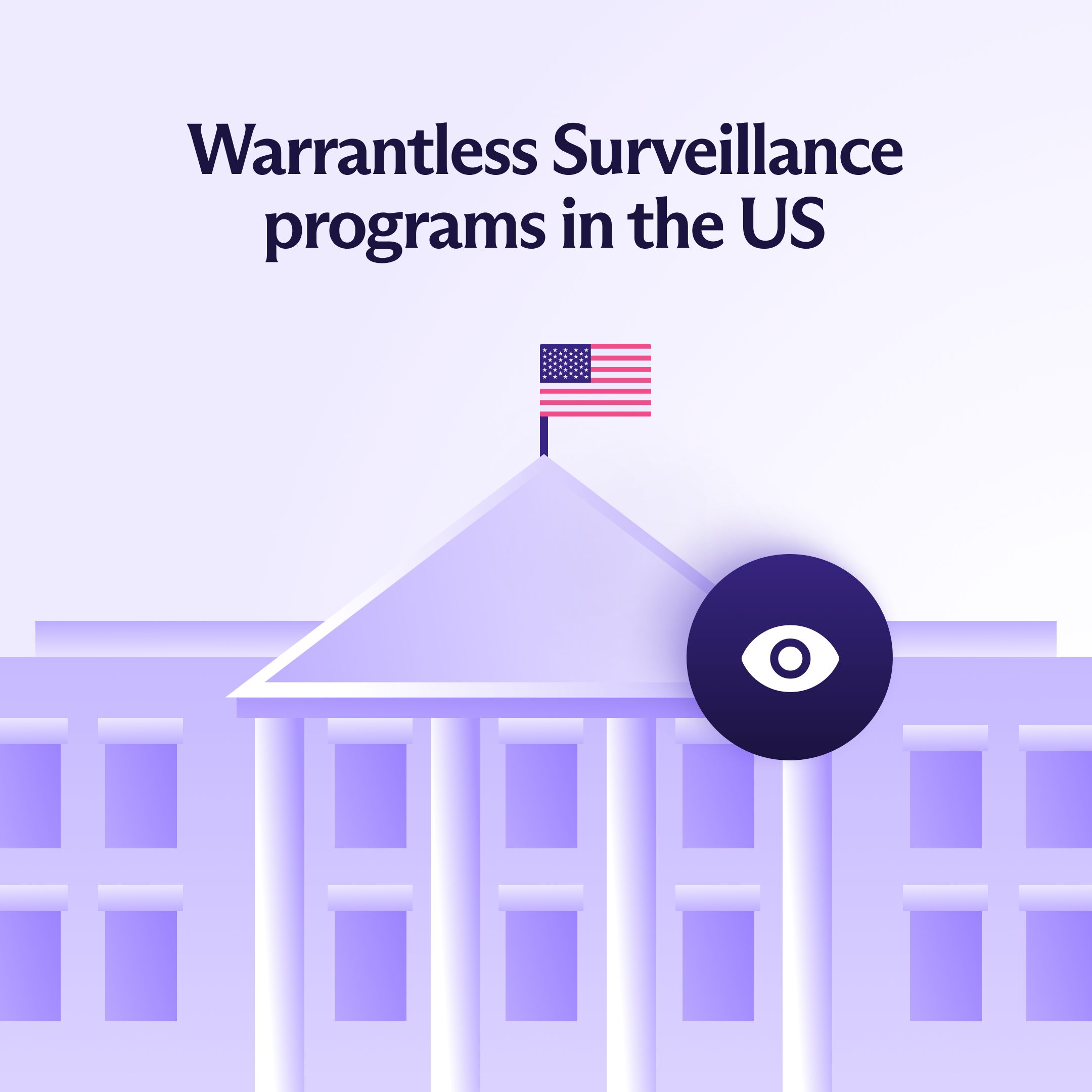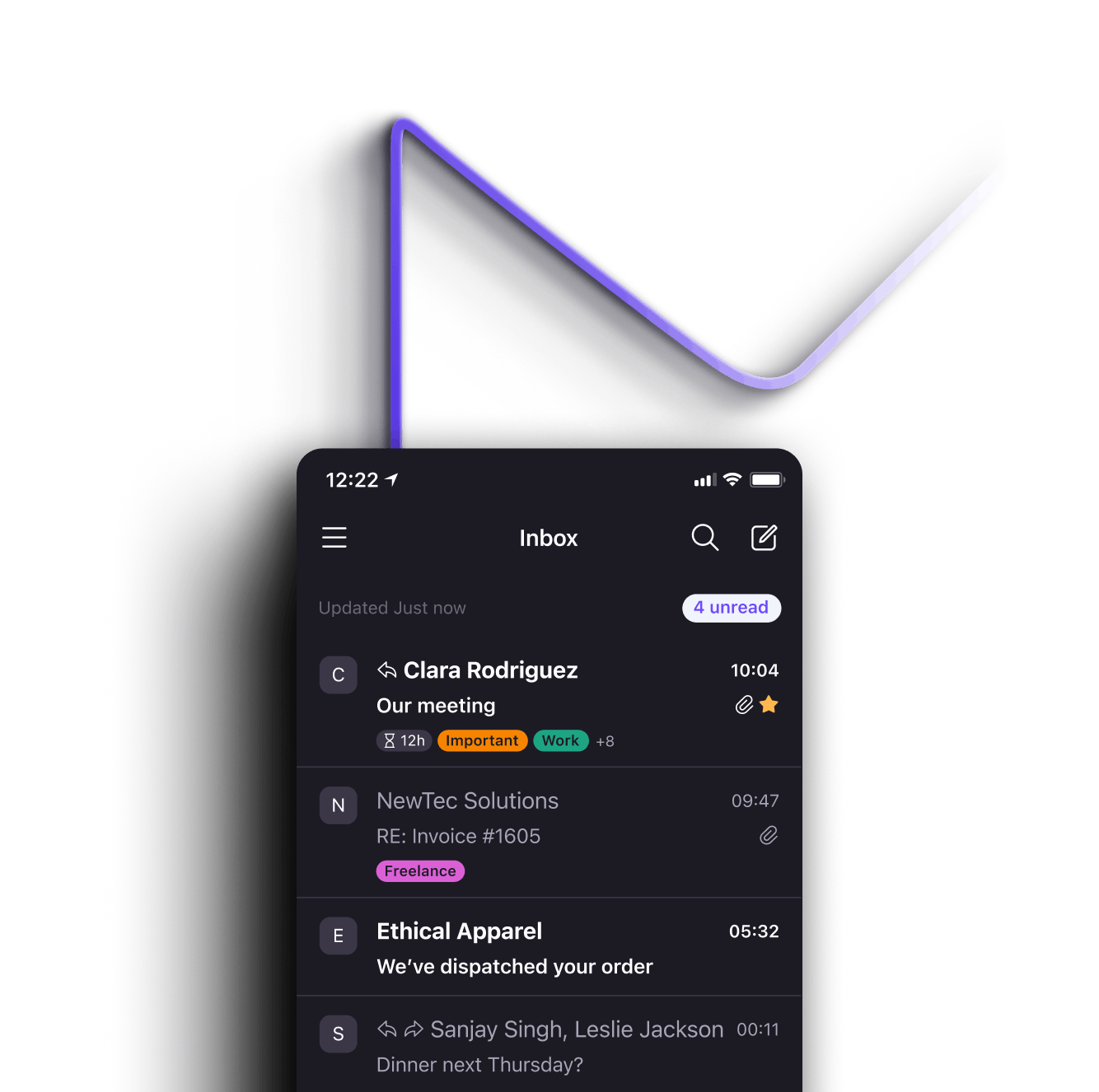Is the FBI watching you?
by Richie Koch | March 12 2025 | 1-minute read

The United States claims to be the land of the free, but freedom is impossible without individual privacy. You must be certain the government will not arbitrarily monitor you in your home or on your devices. Yet the US legal system does little to protect your privacy rights, an issue that has existed across multiple administrations. Because of this, we're providing a comprehensive update on how government agencies, law enforcement, and corporations infringe on your data privacy and how to protect yourself online.
Who sees your data, and how do they get away with it?
Section 702 of the Foreign Intelligence Surveillance Act allows agencies to monitor the communications of people outside the US without a warrant. But if US citizens or residents happen to communicate with those people, their data will also be collected. It's then added to a vast database of emails, texts, and calls that the FBI can access.
Law enforcement agencies can also use so-called geofencing warrants, which allow them to collect data from all the devices determined to have been within a specific area at a certain time. This indiscriminate method often sweeps up innocent bystanders, invading privacy on a massive scale. Companies like Google and Apple hand over the location data of tens of thousands of people each year thanks to these warrants.
To sidestep legal requirements, agencies can also purchase data from brokers. These brokers collect detailed personal information, including location, browsing habits, and health records, through apps and online services. Agencies that buy this data avoid the need for warrants, making third-party data collection indistinguishable from direct surveillance.
Finally, National Security Letters (NSLs) allow the FBI to compel companies to hand over sensitive user data without any judicial approval. NSLs often come with gag orders, preventing companies from notifying users of the data request. Big Tech companies like Google, Meta, and Apple receive hundreds or thousands of these secretive requests annually.
How Proton protects your data
Private email services use end-to-end encryption and other advanced security measures to ensure that only you and your recipients can see your messages. Send a secure email to a friend, and no one else can read it. Proton Mail uses end-to-end encryption and other advanced security measures to ensure that only you and your recipients can see your messages.
With Proton Mail, your privacy is guaranteed:
- Your emails, files, passwords, and schedules are encrypted, so no one can see them.
- Your data is safeguarded under Swiss privacy laws, meaning foreign governments can't access it.
- Unlike Big Tech, Proton is owned by the Proton Foundation, ensuring your data is never compromised for profit.
Protect your privacy with Proton Mail
Choose a plan that works for you
- storage
- users
- email addresses
- storage
- users
- extra email addresses for you
- Support for custom email domains
- Unlimited folders and labels
- hide-my-email aliases
- Priority customer support
Premium value included
- storage
- users
- extra email addresses for you
- Support for custom email domains
- Unlimited folders and labels
- Unlimited hide-my-email aliases
- Dedicated customer support
- Ultra fast and private VPN
- Encrypted password manager
- Encrypted cloud storage for photos and documents
- Advanced account protection
Premium value included
- storage
- Up to users
- extra email addresses for you
- Support for custom email domains
- Unlimited folders and labels
- Unlimited hide-my-email aliases
- Dedicated customer support
- Ultra fast and private VPN
- Encrypted password manager
- Encrypted cloud storage for photos and documents
- Advanced account protection
- Proton Scribe writing assistant
Premium value included

As recommended by
Choose an email trusted by millions of users worldwide
Proton has several plans you can choose from. Paid plans support Proton’s mission to build a better internet where privacy is the default.






